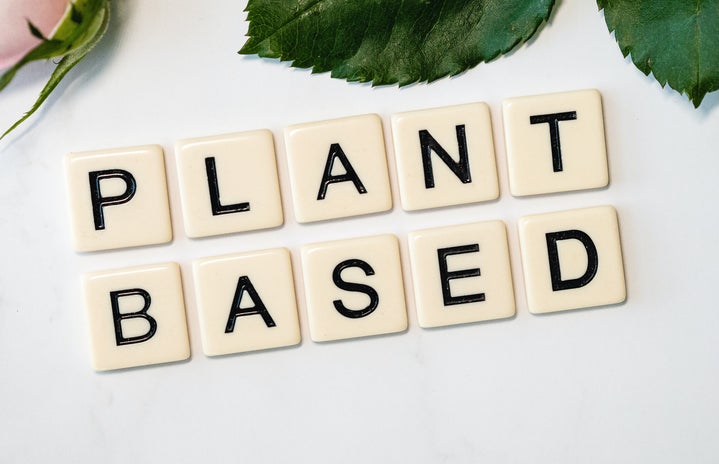I’ve been vegan for roughly 11 months now, and one of the questions I get asked most is “why did you become vegan?” Many people assume it’s because I want to eat “healthy” and have an excuse for choosing healthier options, even though there are plenty of unhealthy foods that are vegan (hi french fries).
What led me to becoming vegan was watching documentaries on the effects meat has on our planet. Spoiler alert: it’s devastating to see.
One pound of beef takes roughly 1,800 gallons of water to produce. Raising cows takes a lot of water use due to the irrigation of the fields, their feed and regular drinking water. Cows eat excessive amounts of feed, and feed takes a lot of water to be produced. Replacing a whole chicken with a plant-based meal would save roughly 4,000 liters of water. This goes to show that seemingly small steps of change have major results. 70 percent of the grain grown in the U.S. is eaten by livestock. This equates to 700 million tons of food that could have gone to humans. Additionally, cows are terrible for much of our natural systems.
With the help of deforestation, as a result of needing to make more room for livestock, the soil erodes and weakens. If you remember the fires in the Amazon a few months ago, that was intensified as a result of cattle farmers burning that beautiful ecosystem — all to make room for cows.

What does veganism have to do with this? Well, with more people going vegan or opting for plant-based choices, there is less demand for beef. Farmers and suppliers see this demand go down, so they produce less. It’s your basic supply and demand model.
In the U.S., meat is such a big part of our culture. Men see it as a way of showing their masculinity, and people in general are eating more meat to substitute it for carbs. We are the number one consumer of meat in the entire world. Annually, an average American consumes 219 pounds of meat. Recently, this idea has gone mainstream, which has led to some being more conscious of their meat consumption. Restaurants and fast food chains like Burger King and KFC now provide vegan options. It is becoming more accessible for anyone to choose a plant based option.

Plants have so many essential nutrients that our bodies thrive off of, and the environmental impact of harvesting them doesn’t compare to the livestock process. I urge you to consider trying to go one meal a week without meat. “Meatless Monday” is a popular trend where people either go the whole day without eating meat or just one meal. It truly is the little steps that make all the difference.
If you’re looking to learn more about veganism and plant-based lifestyles, there are documentaries such as “Forks Over Knives” and “The Game Changers.” The latter is a great film for anyone who is extremely skeptical about plant-based eating. It debunks the entire myth that vegans don’t get enough protein.
Here are some of my favorite vegan food bloggers who make easy, delicious and quick recipes:
https://www.rainbowplantlife.com/
https://minimalistbaker.com/recipe-index/?fwp_special-diet=vegan



